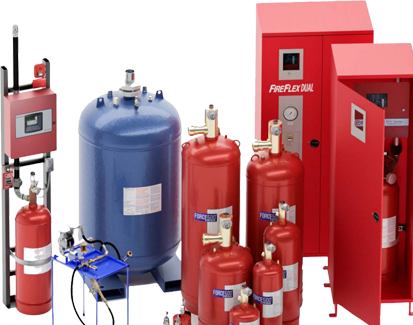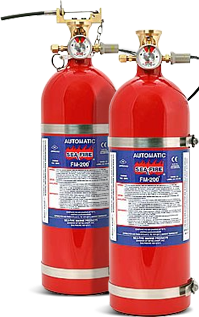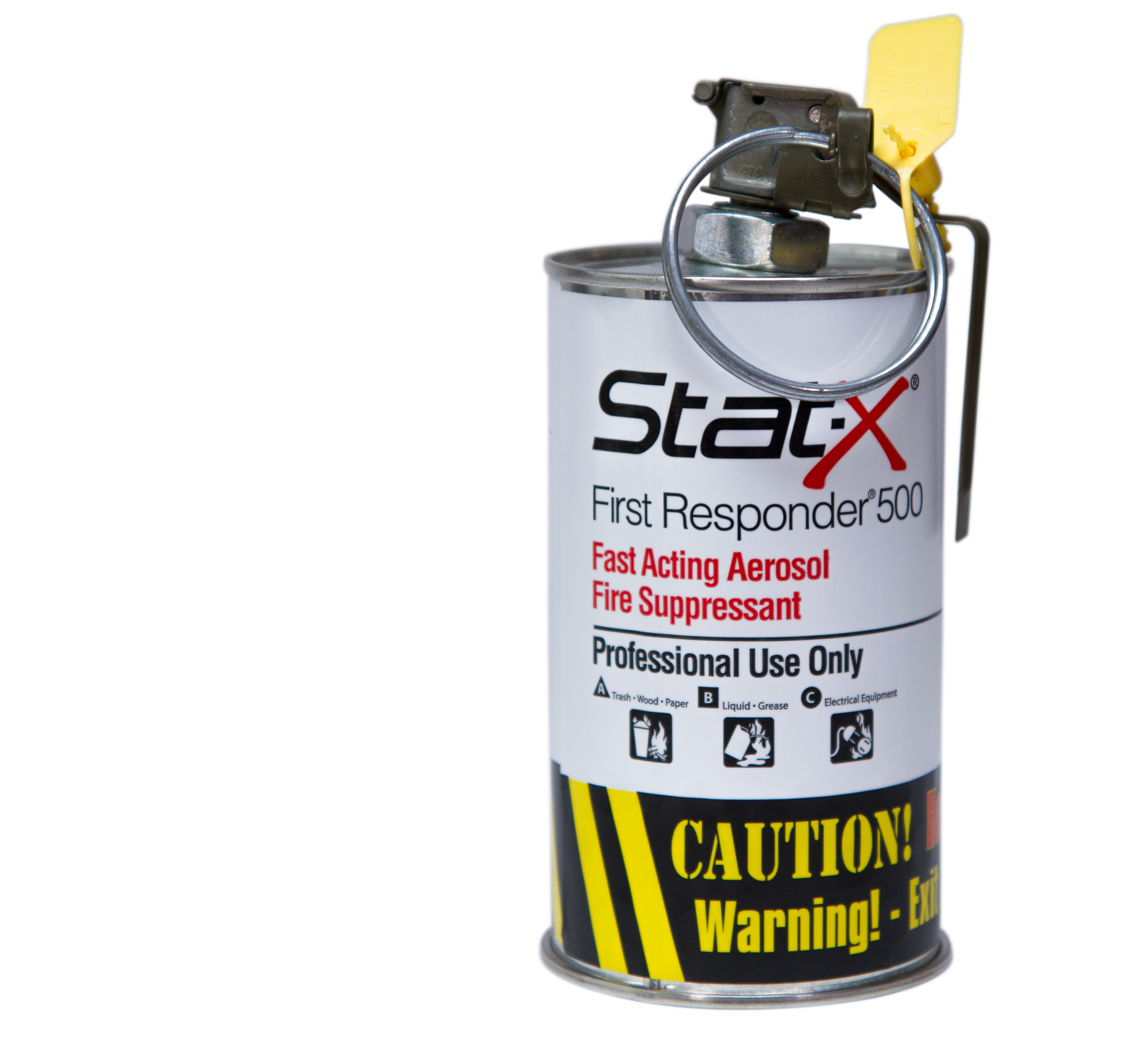Safeguarding Your World: Mitigating Lithium-ion Battery Fire Hazards
Battery fires pose a serious risk due to overheating, thermal runaway, and chemical reactions. Implementing proper fire suppression systems, safe storage, and regular inspections helps mitigate fire hazards and protect both property and personnel.
Key Takeaways
- Prevent Thermal Runaway – Proper cooling and monitoring systems reduce the risk of battery fires.
- Use Specialized Fire Suppression – Water mist, aerosol, and gas-based suppression systems are ideal for battery fire containment.
- Follow Safe Storage Practices – Keeping batteries in temperature-controlled environments minimizes risks.
- Regular Inspections Matter – Routine checks help identify issues before they lead to fire hazards.
In our tech-driven world, lithium-ion batteries have become an indispensable part of our daily lives, powering everything from smartphones to electric vehicles. However, while these batteries offer convenience and efficiency, they also come with inherent risks and fire hazards that demand our attention.
For all Canadian residents, understanding these potential dangers and taking proactive measures can significantly reduce the likelihood of accidents and ensure safety.
Explore further
Understanding the Potential of Battery Energy Storage Systems (BESS)
Battery energy storage systems (BESS) are revolutionizing the way we generate, store, and distribute electricity.
As the world shifts towards a cleaner and more sustainable energy future, BESS play a crucial role in addressing the challenges posed by intermittent renewable energy sources such as solar and wind. These systems act as a bridge between energy supply and demand, providing a reliable medium for storing excess energy when generation exceeds consumption. BESS also release energy during peak demand, or when renewable sources are not available, helping stabilize the grid and reducing the risk of power outages and blackouts while enhancing overall resilience.
One of the biggest advantages of battery energy storage systems is their flexibility and scalability. They can be deployed at various scales, from small residential installations to utility-scale projects, catering to diverse energy needs. This versatility makes BESS a valuable asset for grid operators, enabling them to balance electricity supply and demand dynamically.
Moreover, battery energy storage systems contribute to the integration and mainstream adoption of electric vehicles (EVs). By offering a means of storing energy for EV charging, they play a pivotal role in establishing a sustainable transportation ecosystem, reducing greenhouse gas emissions, and combating climate change.
Beyond their role in enhancing grid stability and supporting clean transportation, BESS also offer economic benefits. They enable peak shaving and load shifting, allowing consumers to use electricity during off-peak hours when prices are lower, leading to cost savings. Additionally, BESS can participate in various electricity markets, providing ancillary services such as frequency regulation and grid balancing, further enhancing their revenue-generating potential.
Understanding the Risks and Fire Hazards of Lithium-ion Batteries
Lithium-ion batteries store large amounts of energy in a compact space, making them susceptible to thermal runaway — a situation where heat generation exceeds cooling capabilities, leading to an uncontrollable chain reaction.
Factors such as overcharging, physical damage, exposure to extreme temperatures, or manufacturing defects can trigger thermal runaway, causing batteries to ignite or explode. Recognizing these risks is the first step in mitigating potential disasters.
People also search
Question: How can businesses mitigate battery fire hazards?
Answer: To mitigate battery fire hazards, businesses should store batteries properly, implement fire suppression systems, and conduct regular inspections. Preventing thermal runaway and overheating reduces the likelihood of dangerous battery fires.
Store at the Correct Temperature
Temperature also plays a pivotal role in the stability of lithium-ion batteries. Storing batteries at extreme temperatures can compromise their integrity and increase the likelihood of fire incidents. Ideally, it is best to keep lithium-ion batteries in a cool, dry place, avoiding direct sunlight or freezing conditions.
Never Use Potentially Damaged Batteries
A damaged battery is a ticking time bomb. Avoid using any battery that shows visible signs of damage, such as bulging, leaking, or cracked casings. In addition, continuously monitor batteries for any anomalies, and if you encounter a damaged battery, safely dispose of it following the manufacturer's guidelines. Always replace worn-out batteries with genuine and recommended alternatives, ensuring compatibility and optimal performance.
Detect Hotspots Early
Proactive detection of potential hotspots can be a game-changer in preventing lithium-ion battery fires.
Various advanced thermal monitoring systems are available that can identify abnormal heat build-up in batteries, signalling a potential risk. Li-ion Tamer's Rack Monitor off gas early warning detection solution improves the safety of li-ion batteries. By integrating these technologies into devices or storage systems, you can take pre-emptive action, preventing small issues from escalating into dangerous situations.
Invest in Lithium Ion Battery Fire Suppression
When it comes to safeguarding against lithium-ion battery fires, early intervention is paramount, and investing in effective fire suppression systems designed explicitly for such scenarios can significantly reduce the impact of a potential fire outbreak. Lithium ion battery fire suppression systems utilize cutting-edge extinguishing agents and techniques, such as aerosol-based technology and clean agent FK-5-1-12, to help suppress fires, limiting damage and ensuring a safer environment for everyone.
Improve Emergency Planning
Regardless of whether or not you have taken every possible precaution, accidents can still happen, and thus, having a robust emergency plan is essential. Whether at home, in the workplace, or in public spaces, make sure to familiarize yourself and others with proper fire safety protocols and ensure that fire extinguishers and fire blankets are accessible, and that everyone knows how to use them properly. Conduct regular fire drills to practice evacuation procedures, and establish clear communication channels to swiftly notify authorities in case of an emergency.
All in all, as we continue to rely on lithium-ion batteries to power our fast-paced lives, understanding and addressing their associated risks is crucial for ensuring our safety. By storing batteries correctly, avoiding damaged ones, detecting hotspots early, investing in fire suppression systems, and improving emergency planning, we can effectively mitigate lithium-ion battery fire hazards. We can all make conscious choices to protect ourselves, our loved ones, and our surroundings - together, we can embrace technology responsibly and keep our world safe.
Take the first step towards safety today by implementing these strategies to protect against lithium-ion battery fires. At Control Fire Systems, we have the resources necessary to provide you with the safety equipment you need for all lithium-ion infrastructures, big or small. Give us a call at 1-866-525-8514 , and let's work together to safeguard our world.













